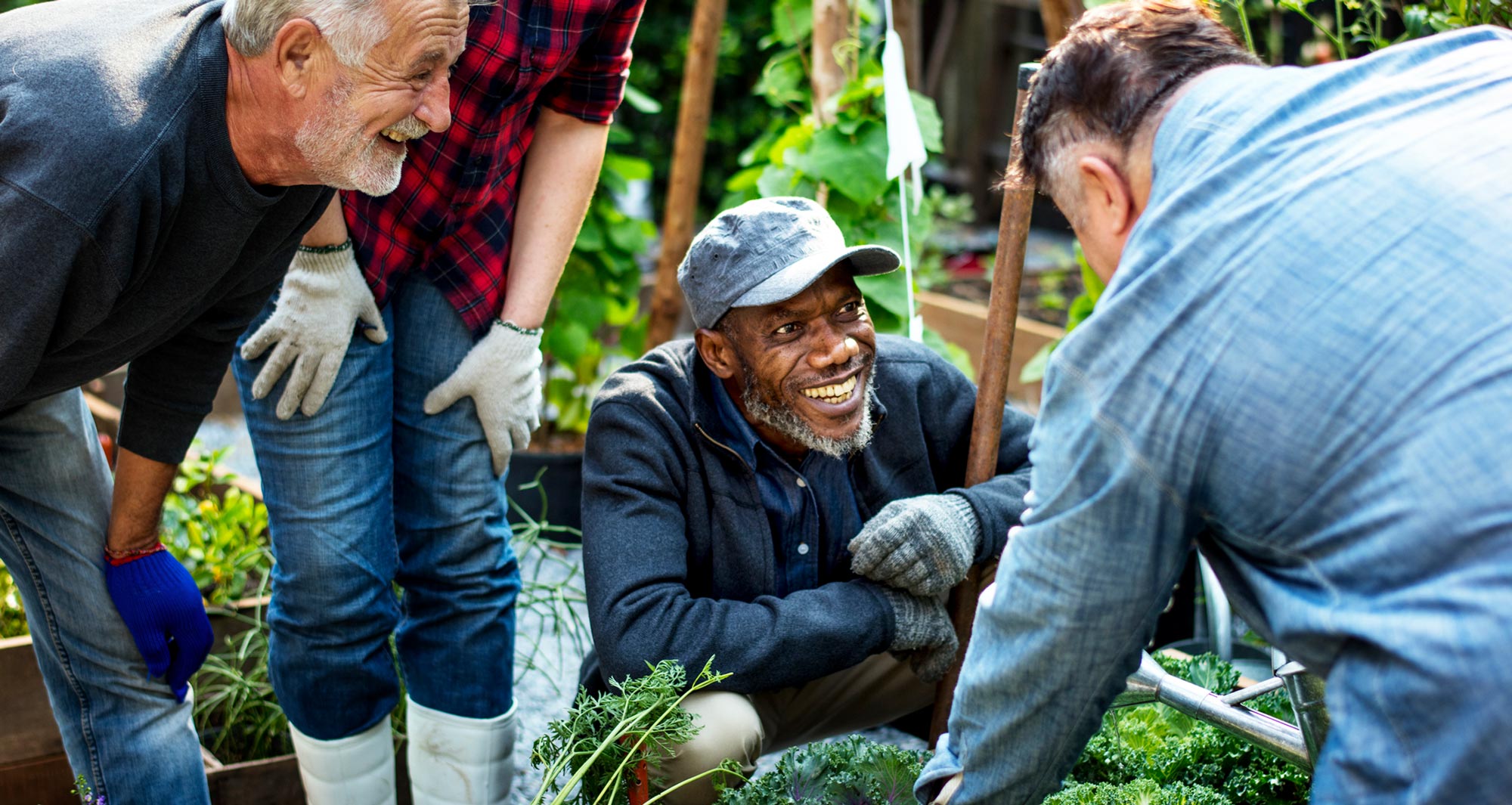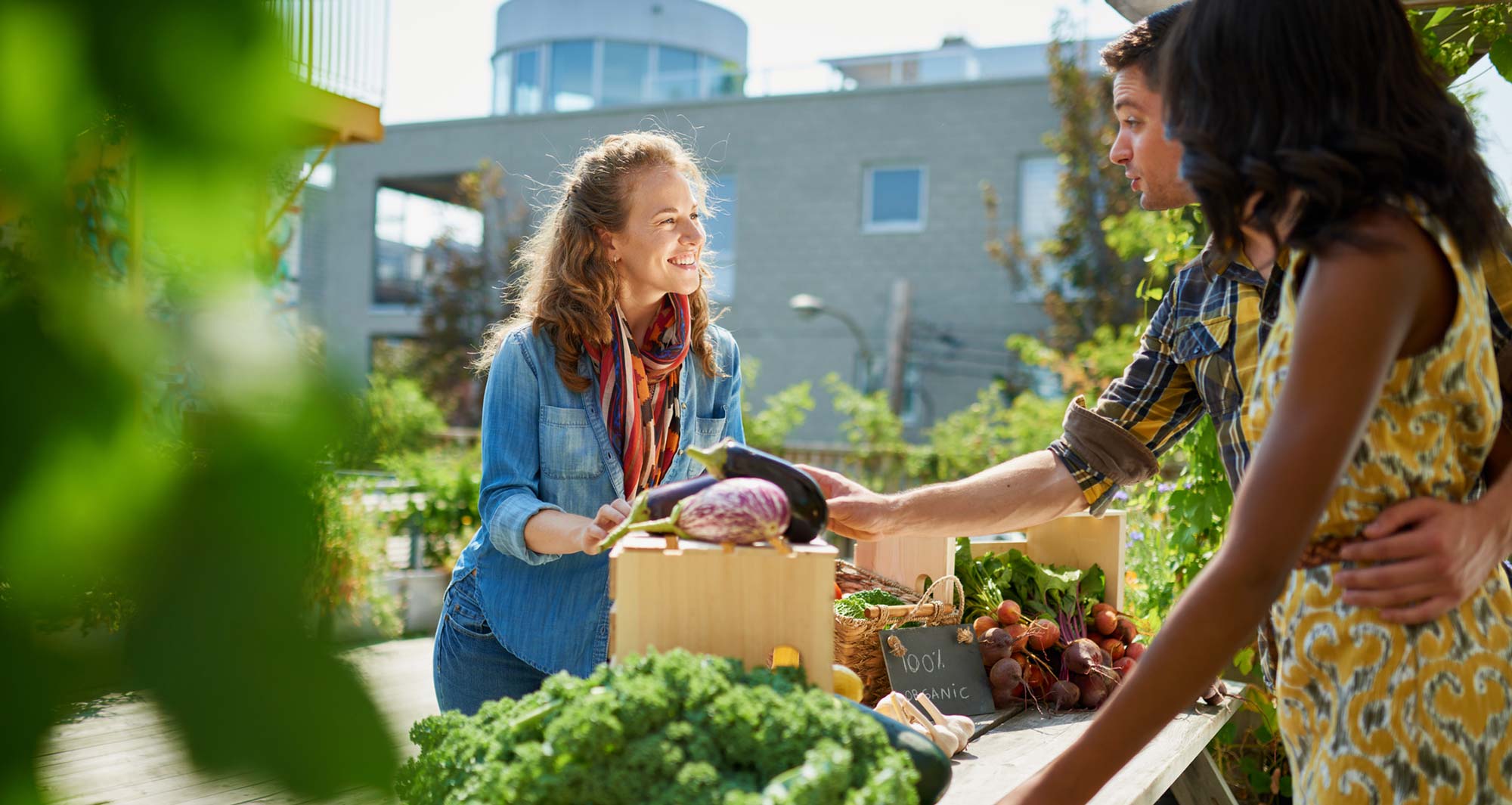Discover why it’s important to buy local food, the health benefits of eating locally grown produce, and why choosing local food benefits the environment.
Have you wondered why it’s important to buy local food?
Local food is now a mainstream trend, with more and more people seeking out fresh, local options for produce and other foods. And more restaurants are sourcing locally grown ingredients as well, often using the term farm-to-table.
But what is “local” food? How big of an impact does eating local food have on your health and the planet? And why is it important to know more about where your food comes from?
What Is Local Food and Why Should You Care?
There’s no formal definition of the term local food. But one common definition of “local” food is food grown within 100 miles of its point of sale or consumption.
But it’s up to you to decide what buying local food means to you. Maybe it means foods grown and produced in your state or your region. Or maybe it means that it comes from farmers you know and can talk to — for example, at a farmer’s market or through a CSA. And for some people, “local” is more about the values of small-scale and community-based than about a specific geographic configuration.
More and more people want to know where their food comes from and the farming practices of the farmers that grow and produce it. And this is important for many reasons:
- It helps you develop a connection with food.
- You become more aware of what you’re putting in your body.
- You vote every time you shop, and with knowledge comes the ability to support foods and growers you believe in.season doesn’t have far to travel before being sold.
- Why Buy Local Food? For One Thing, It May Be Better for Your Health
Local food can be better for your health for a few reasons. To begin with, local foods often retain more nutrients. Local produce is allowed to ripen naturally, while food that travels long distances is often picked before it’s ripe. And food picked fresh and in season doesn’t have far to travel before being sold.
Another study published in the Journal of Agricultural and Food Chemistry found that the levels of health-promoting anthocyanin pigments more than quadrupled as blackberries became fully ripe.
In addition, locally grown produce may be safer. When they are imported and out of season, fruits like tomatoes, bananas, and pears are often picked unripe. And then, they are artificially “ripened” with ethylene gas.
Also, foods from local growers may contain less (or no) pesticides. Farmers have to pay an extra fee to become certified organic. Some small-scale farmers use organic methods but aren’t certified because they simply aren’t big enough to be able to afford the certification fees. Even if they aren’t organic, small farmers tend to use fewer chemicals than large, industrialized farms.
If you can, talk to your farmers at your local market and ask them what (if any) pesticides they use. And be sure to wash your produce thoroughly to reduce your exposure to pesticides — which is especially important for pregnant women and children.

Why Buy Local Food? It Can Be Better for the Environment.
Food is one of the leading drivers of climate change
Eating more local food reduces CO2 emissions by reducing food miles — the distance food travels from farm to consumer. The average piece of produce in the U.S. travels 1,500 miles, while local food may only travel 100 miles (or less), according to researcher Rich Pirog at the Leopold Center for Sustainable Agriculture at Iowa State University.
Local food helps preserve green space. When local farmers are well compensated for their products, they are less likely to sell their land to developers. Likewise, with growing consumer demand, young farmers are increasingly likely to enter the marketplace by developing unused space, such as empty lots, into thriving urban gardens — many of which are grown organically.
Eating more local food can be one part of the solution. But, local is not the whole picture of food sustainability. The impact our food choices have on the environment includes many factors.
In some cases, food produced farther away may be more sustainable if it’s grown more responsibly, if it carries a smaller ecological footprint, or if it’s in season.
Choosing more plant-based foods is an important part of the equation as well. If you want to eat a more sustainable diet, look for foods that are local, organic, and low on the food chain. The higher the percentage of your protein intake that comes from plant foods, the more earth-friendly and healthful your diet will be.
Other Reasons Why It’s Important to Buy Local Foods
Health and sustainability are two excellent reasons to eat more local food. But they’re not the only reasons. Here are some surprising, and not-so-surprising, benefits:
Fresher food tastes better – When food is picked and eaten at the peak of freshness, it not only retains more nutrients, it also tastes better.
Small, local farms offer more variety. Our industrial agricultural system uses a monocrop system. But smaller, organic farmers may grow a variety of organic and heirloom produce, which you might not find at the supermarket.
Supporting local food aids your local economy. By choosing food produced locally, you’re supporting your community, and you help keep local producers in business.
Local food creates community and connection. In our increasingly online and isolated world, loneliness is a growing problem. Getting to know your local growers and shopping or volunteering at a local farmer’s market, co-op, or community supported agriculture (CSA) counteracts this trend. And doing so can help you build meaningful human connections.









Validate your login
Anmelden
Neuen Account erstellen